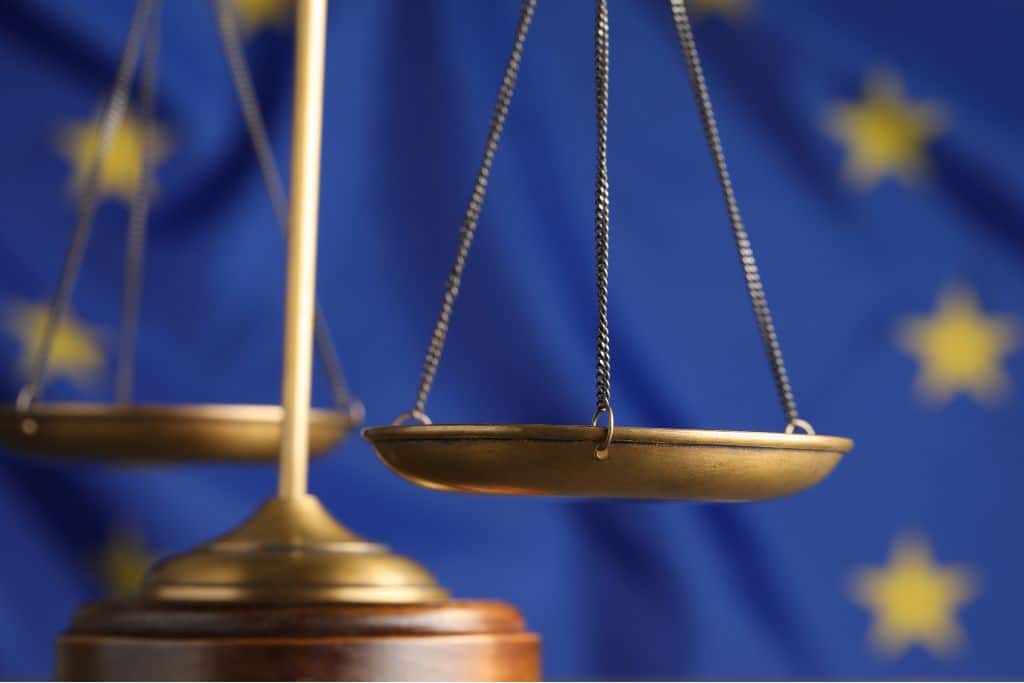Tuesday’s ruling established a binding legal precedent for all signatories to the European Convention on Human Rights and could set an important precedent for future climate litigation cases.
—
Europe’s top human rights court on Tuesday ruled in favour of a group of elderly Swiss women, who accused their government of violating fundamental rights by failing to adequately tackle the climate crisis, a win hailed as “historic” and a “huge success.”
KlimaSeniorinnen (Senior Women for Climate Protection) – a group of more than 2,000 women aged 64 and over – argued before the European Court of Human Rights (ECHR) that their government’s failure to reduce greenhouse gas emissions had violated their human rights. The women contend that more frequent and intense heatwaves – a result of climate change – are infringing on their rights to life and health.
Based on the absence of a binding national greenhouse gas budget post 2024 and previous failure to meet emissions reduction targets, the court found a violation of the right to privacy and family life protected under Article 8 of the Convention, which it interpreted as freedom from environmental threats to one’s personal life.
In its ruling, the judges also found a violation to the right to access to a court after Klimaseniorinnen’s case was rejected by three levels of judicial bodies in Switzerland. The court argued that previous rulings were “not based on sufficient examination of the scientific evidence concerning climate change,” thus emphasising the role domestic courts will play in future climate litigation cases.
The Swiss state was ordered to put in place measures to address those shortcomings and cover the group’s legal costs, around €80,000 (US$87,000), within three months.
More on the topic: The Most Important Climate Litigation Cases of 2024 and Why They Matter
Reactions
Speaking outside the court after the ruling, Swedish climate activist Greta Thunberg described Switzerland’s climate inaction as “a betrayal beyond words,” saying the ECHR ruling “makes it very clear that European states have a legal responsibility to take real climate action” to protect their citizens.
“It cannot be a political choice whether to respect human rights or not,” the 21-year-old activist said, adding that this “is only the beginning.”
United Nations High Commissioner for Human Right Volker Türk said the ruling “provides a basis for determined action and justice globally.”
“Today’s ruling… leaves no doubt: the climate crisis is a human rights crisis, and States have human rights obligations to act urgently and effectively and in line with the best available science to prevent further devastation and harm to people and the environment,” Center for International Environmental Law (CIEL) senior attorney Joie Chowdhury said in a statement.
Setting a Precedent
While this is not the first climate litigation case brought against a government, it marked the first opportunity for the ECHR to consider the scope of governments’ existing obligations under the European Convention on Human Rights in the context of climate change, with the ruling setting an important, legally binding precedent for all its 46 signatories and future climate litigation cases.
Two similar cases, including one initiated in September 2020 by four Portuguese children and two young adults against 32 European governments for allegedly breaching human rights through climate inaction – the largest climate case ever to be brought before the ECHR in Strasbourg, were dismissed on Tuesday on the grounds that the plaintiffs had not had their case tried at the national level.
Gerry Liston, senior lawyer at the Global Legal Action Network (GLAN), the non-profit behind the Portuguese children’s case, called the Swiss ruling “a massive win for all generations.”
“No European government’s climate policies are aligned with anything near 1.5C, so it will be clear to those working on climate litigation in those countries that there is now a clear basis to bring a case in their national courts.”
This story is funded by readers like you
Our non-profit newsroom provides climate coverage free of charge and advertising. Your one-off or monthly donations play a crucial role in supporting our operations, expanding our reach, and maintaining our editorial independence.
About EO | Mission Statement | Impact & Reach | Write for us


















